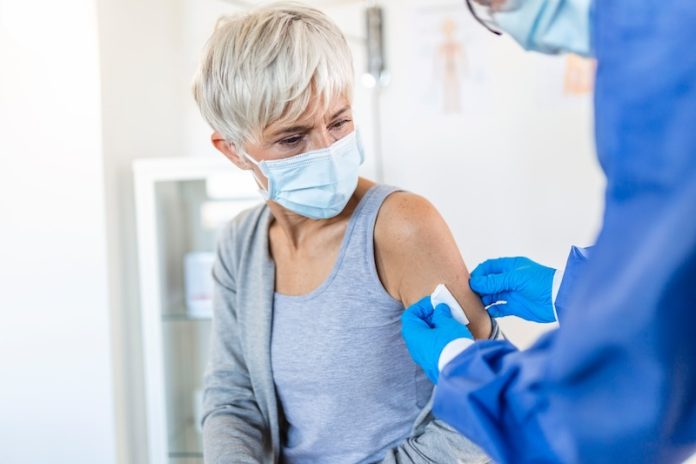
A recent study by experts at the University of Nottingham revealed an essential breakthrough for individuals with inflammatory conditions who receive a COVID-19 booster vaccination.
The study suggests that temporarily pausing their treatment for two weeks following the vaccine can significantly enhance their immune response.
In simpler terms, when people with inflammatory conditions, such as rheumatoid arthritis or psoriasis, took a break from their medication for two weeks right after getting the COVID-19 booster shot, their bodies produced twice as many antibodies after four weeks.
Even after 26 weeks, the antibody response remained 1.5 times higher than those who continued regular treatment. This improved protection lasted for a solid six months.
The catch is that some patients experienced more flare-ups of their inflammatory conditions in the weeks following their medication pause.
However, most of these flare-ups could be managed without additional medical intervention.
The study, known as the Vaccine Response On Off Methotrexate (VROOM) trial, initially involved 250 patients and was followed up for 12 weeks.
The interim results from this trial were previously published in Lancet Respiratory Medicine and have already influenced clinical guidelines in both the UK and the US.
Now, the full findings from a larger group of 383 participants have been published in Lancet Rheumatology, confirming that this improved protection lasts for a substantial six-month period.
Additionally, the blood of individuals who paused their methotrexate treatment was more effective at combatting both the Wuhan strain and the omicron BA.1 variant of the virus.
Importantly, when considering the entire six-month follow-up period, there was no increased risk of disease flare-ups in patients who suspended their treatment immediately after receiving the COVID-19 booster vaccination.
These findings have significant implications for national immunization advisory committees and specialist societies responsible for recommending the timing of vaccinations for individuals on immune-suppressing medications.
The VROOM trial focused on individuals with various inflammatory conditions who were being treated with methotrexate.
Methotrexate is the most commonly used immune-suppressing drug, with approximately 1.3 million people in the UK alone prescribed this medication for conditions like rheumatoid arthritis and psoriasis.
Many of these patients were classified as clinically highly vulnerable during the initial stages of the COVID-19 pandemic, based on their specific health conditions and risk factors.
While methotrexate effectively manages these conditions, it weakens the body’s ability to fight infections and generate a robust response to vaccines, including those against COVID-19.
Professor Abhishek, the study’s Chief Investigator, emphasized the ongoing threat of COVID-19 and the emergence of new variants.
He highlighted the importance of optimizing long-lasting protection for individuals susceptible to the virus and how the findings from the study can help patients and healthcare providers make informed decisions about pausing methotrexate treatment around the time of COVID-19 vaccination.
Professor Danny McAuley, the Scientific Director for NIHR Programs, stressed that millions of individuals with compromised immune systems remain vulnerable to COVID-19, especially as the colder months approach.
Managing medications about vaccinations, as indicated by this research, can keep patients healthier and reduce the burden on healthcare systems.
If you care about long COVID, please read studies about the long mystery of long COVID: it’s not inflammation! and Long COVID: The uninvited guest that tires the brain and worsens moods.
For more health information, please see recent studies about COVID infection and vaccination linked to heart disease, and results showing extracts from two wild plants can inhibit COVID-19 virus.
The research findings can be found in The Lancet Rheumatology.
Copyright © 2023 Knowridge Science Report. All rights reserved.



